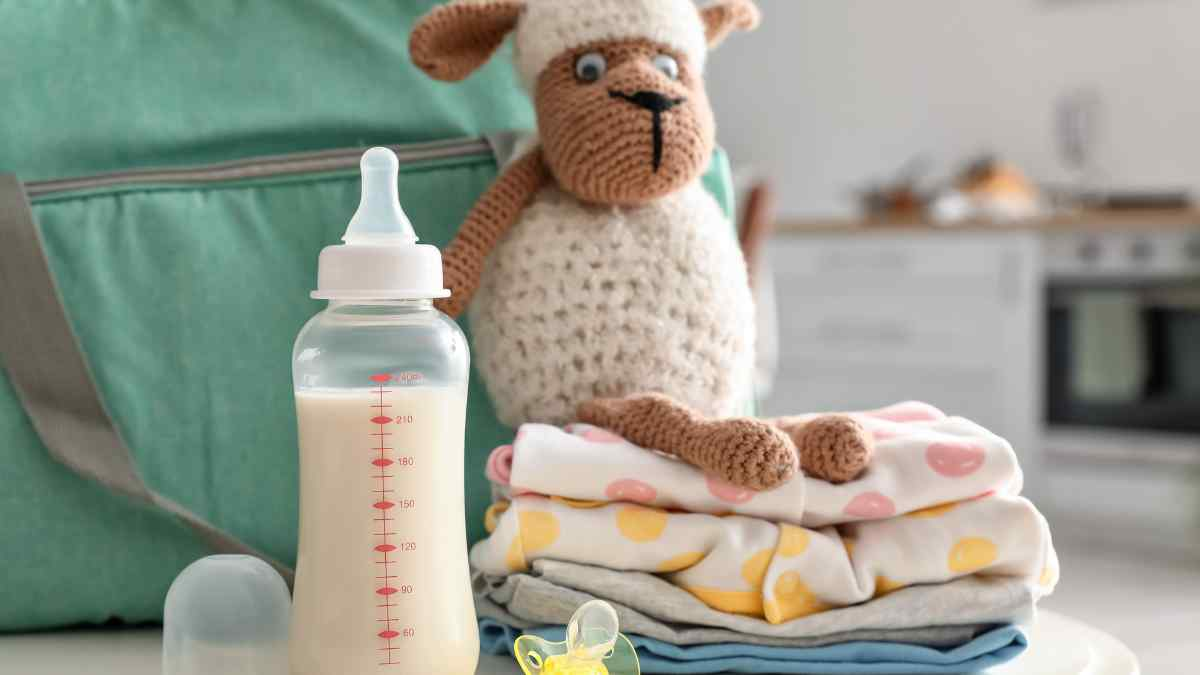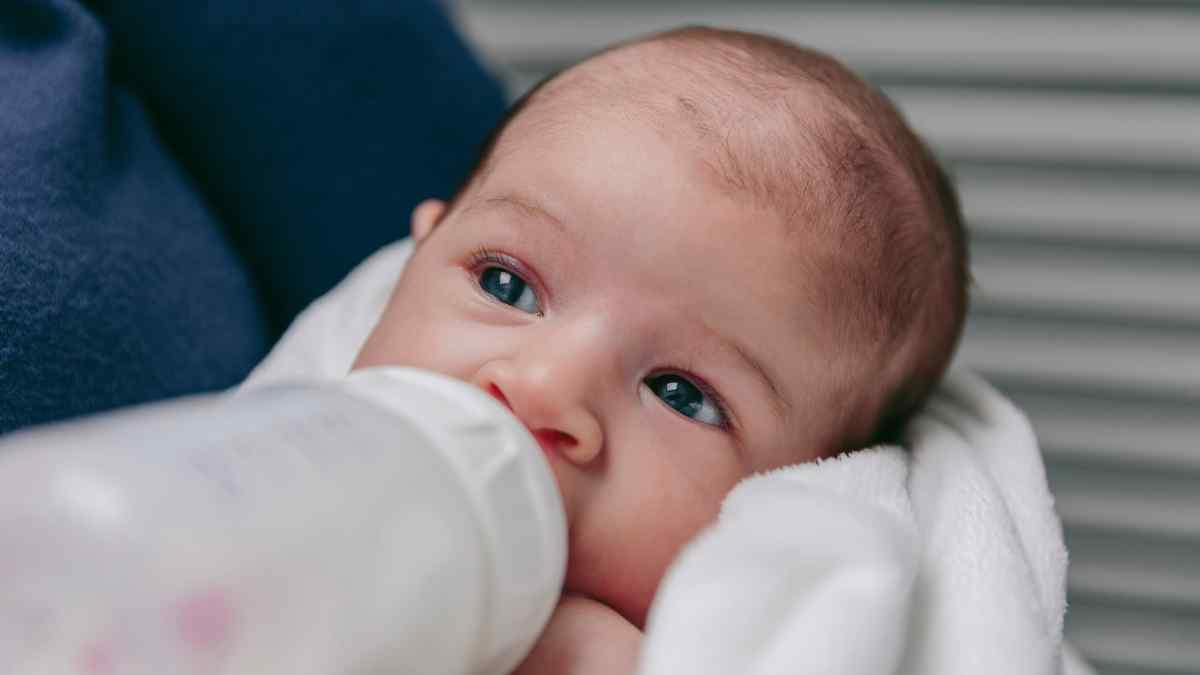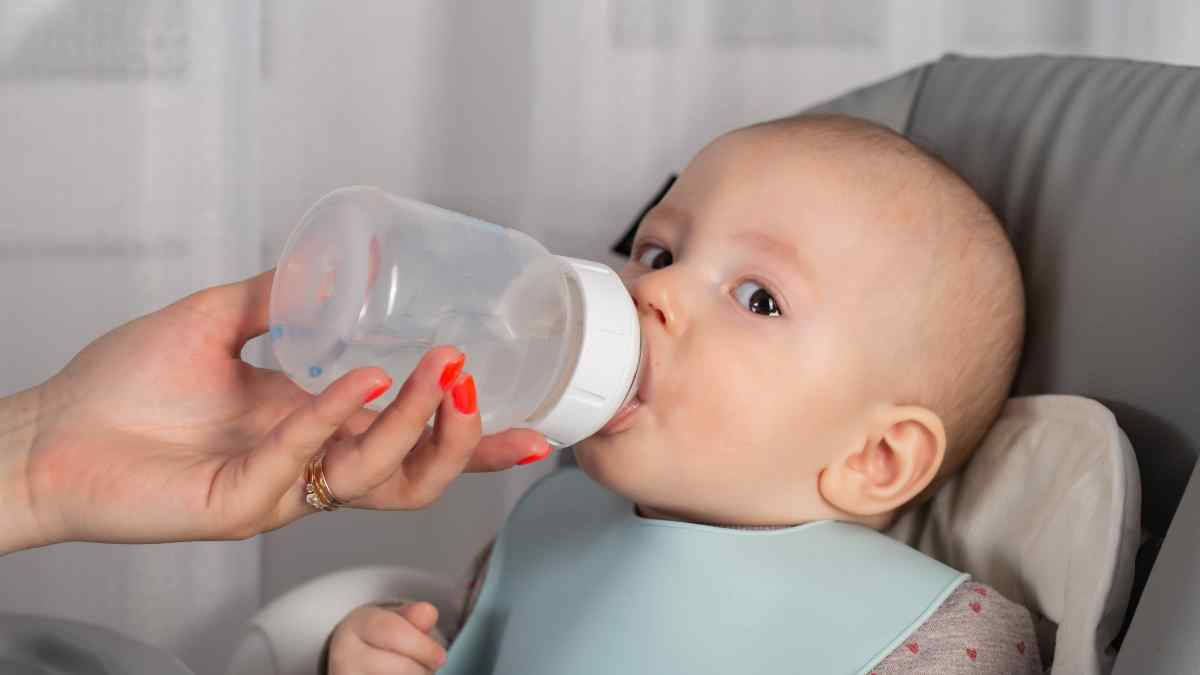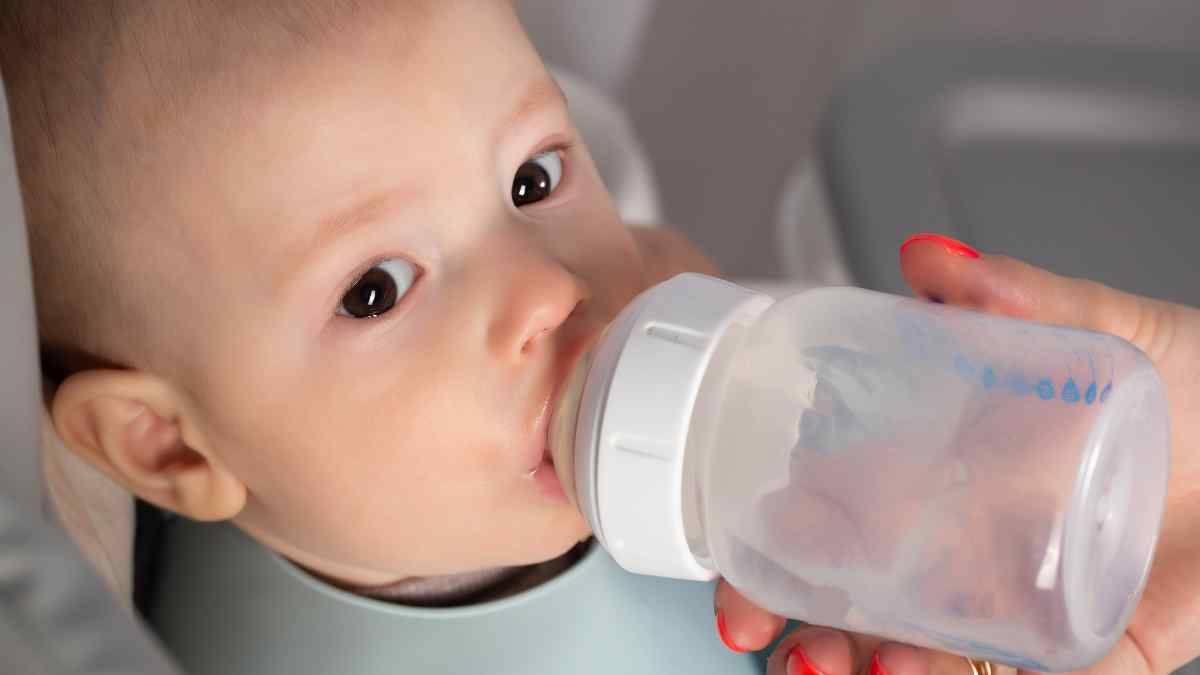The journey of parenthood is filled with countless decisions, and one of the most crucial choices revolves around the nourishment of your little one. As you embark on this journey, you might find yourself pondering the best type of bottled baby formula. With a plethora of options available, ranging from bottled to boiled and filtered, it’s essential to understand the benefits and drawbacks of each.
This article delves into the intricacies of selecting the right water for infant formula, ensuring that your baby receives optimal nutrition while keeping potential contaminants at bay. Join us as we explore the nuances of each option, helping you make an informed decision for your precious one’s health and well-being.

The Basics of Baby Formula
In the vast world of infant care, one topic that continuously piques the interest of new parents is baby formula. Infant formula, commonly referred to as bottled baby formula, is a manufactured food designed to nourish babies who are not being breastfed. Its significance in a baby’s diet cannot be understated, especially for those who rely on it as their primary source of nutrition.
The preparation of this formula is meticulous, and water plays an indispensable role in this process. But not just any water—safe and pure water is paramount. Various options like tap water, bottled water, and filtered water are commonly considered. However, the type of water and its treatment before use can significantly impact the quality of the prepared formula.
Tap Water: While easily accessible, tap water may contain harmful contaminants. Boiling tap water is a common recommendation as the act of boiling can kill bacteria and purify the water to some extent. Yet, it’s essential to understand that boiling water doesn’t remove other chemicals or heavy metals. The Centers for Disease Control (CDC) and local health departments often provide water safety tips and can help get your water tested.
Bottled Water: Often marketed as ‘nursery water’ or low fluoride bottled water, it might seem like the go-to choice for formula preparation. However, bottled water flew into scrutiny as not all brands guarantee the absence of too much fluoride or other harmful substances.
Filtered Water: Filtering tap water through water filters, or more advanced versions like a whole house system, can be an excellent middle ground. Water filtration systems, from basic filters to house systems, work to remove bacteria, heavy metals, and other chemicals. Mechanical filters and activated carbon are commonly used mechanisms in these filtration solutions. Filtered water filtering provides a taste often preferred over the flat taste that boiled baby water sometimes has.
However, does boiling tap water purify it entirely? The answer is no. While boiling can remove bacteria, it leaves harmful contaminants like heavy metals. Thus, options like boiled water vs. reverse osmosis or other water filtration solutions become vital. Using boiled water cool after boiling is essential, especially when mixing with powdered formula. An ice bath can quickly bring boiled water down to body temperature, suitable for formula preparation.
Speaking of powdered formula, it’s one of the three main types of infant formula, the others being concentrated liquid and ready to feed. Each has its benefits compared to the others, but powdered formula, when mixed with healthy drinking water, is often the most economical choice.
It’s also noteworthy to mention the concern regarding fluoridated tap water. While fluoride is beneficial in preventing tooth decay, too much fluoride during the infant stage can lead to faint white lines or streaks on the teeth. Hence, the emphasis on using low fluoride bottled water or water filtration to ensure the baby’s formula is safe.

Bottled Water for Baby Formula
Fresh from our dive into the intricacies of baby formula preparation, let’s delve into a specific choice many parents ponder: bottled water. When it comes to preparing your bottled baby formula, the quality of water you use is paramount. So, is bottled water the right choice?
Pros
- Convenience Factor: With bottled water, you don’t need to wait for tap water to undergo a rolling boil or pass through a water filter. Simply open a clean bottle, pour the required amount into the formula container, and mix with the powder formula. If you’re on the go or traveling, bottled water offers the advantage of quick preparation.
- Quality Standards and Regulations: Bottled water, especially those labeled for infant use, must adhere to strict regulations regarding water quality. This ensures that harmful substances are kept at bay, and the water is safe for your baby. Local health departments continuously monitor and test bottled water to ensure these standards.
- Variety of Options: Parents have an array of choices when it comes to bottled water. From spring and mineral to distilled, you can pick what suits best for your baby’s formula. Some parents prefer distilled water, given its purity, while others might lean towards mineral water for the added minerals.
Cons
- Environmental Concerns: The use of bottled water raises pressing environmental concerns. Plastic waste from bottles contributes to environmental degradation, and the manufacturing process itself has a significant carbon footprint. Repeatedly buying bottled water instead of using tap water or filtered water from your water supply also increases plastic usage.
- Cost Implications: While buying a bottle now and then might seem trivial, the costs add up over time. Especially when compared to tap water or even boiled tap water, bottled water can be a more expensive choice in the long run.
- Potential Presence of Minerals or Additives: Not all bottled waters are created equal. Some might contain minerals or additives not suitable for babies, especially those born prematurely. It’s crucial to read labels carefully and understand the source of the water. While some minerals are beneficial, others, in high quantities, might not be ideal for an infant’s developing system.

Filtered Water for Baby Formula
As we continue our exploration into the world of baby formula preparation, having just examined the pros and cons of using bottled water, another viable option emerges: filtered water. While bottled water offers convenience, particularly for on-the-go parents, the advantages of using filtered water can’t be dismissed. Let’s dive into the specifics.
Pros
- Can Remove Chlorine, Lead, and Other Contaminants: One of the primary reasons parents lean towards filtered water is its ability to remove harmful substances. Unlike boiling tap water, which can’t remove certain chemicals, a good filtration system can eliminate chlorine, lead, and other contaminants. This ensures the water quality is optimal for your baby’s consumption, especially when mixed with powder formula.
- Tastes Better than Tap Water: Many parents and even adults find that filtered water has a superior taste to tap water. This is primarily because water filters can effectively remove elements that contribute to an off-putting taste. So, when you’re preparing warm formula for your baby, it’s not just about ensuring the water is safe, but also that it tastes good.
- Some Filters Can Retain Beneficial Minerals: While the primary job of a water filter is to purify water by removing contaminants, some advanced filters can retain beneficial minerals. This means that while harmful substances are filtered out, essential minerals like calcium and magnesium remain, contributing positively to your baby’s nutrition.
Cons
- Need for Regular Filter Replacements: Using a water filtration system isn’t a one-time affair. Filters need regular replacement to ensure they function optimally. This not only means keeping track of when to change the filter but also incurring the recurring cost of replacements.
- Initial Setup Cost: While in the long run, filtered water might prove economical compared to bottled vs boiled water for babies, there’s an initial investment involved. Setting up a water filtration system, be it a simple faucet handle filter or a more advanced reverse osmosis system, can be costly.
- Not All Filters Remove the Same Contaminants: Just like not all bottled waters are equal, not all water filters are designed to remove the same contaminants. Some might be effective against chlorine but not lead. Others might purify water from bacteria but leave certain chemicals untouched. Hence, parents need to choose carefully, keeping in mind their local water supply’s specifics and the recommendations of their local health department.
Additional Tips for Preparing Safe Water for Baby Formula
Continuing our exploration into selecting the best water for infant formula, it’s important to delve deeper into a few specific considerations to ensure the utmost safety for your infant. The water quality and the process of preparing it can profoundly impact the formula’s overall quality. With that in mind, let’s discuss some additional tips that can further assist you on this journey.
1. The Significance of Using Cold Tap Water and Then Boiling
Starting with cold tap water might seem counterintuitive when you’re about to boil it, but there’s a reason behind this recommendation. Cold water is less likely to contain harmful contaminants that can sometimes be found in hot water due to leaching from pipes. Once you have your cold tap water, bring it to a rolling boil for at least one minute. This process effectively kills most bacteria and pathogens, ensuring a safer base for the baby formula. Remember, while boiling helps eliminate bacteria, it doesn’t remove other contaminants like heavy metals. Therefore, using cold water initially and then boiling it strikes a balance between removing microbial contaminants and reducing the risk from other pollutants.
2. Avoiding Softened Water
Softened water is treated to remove hardness minerals like calcium and magnesium and replace them with sodium. For babies, high sodium intake can be detrimental to their developing kidneys. Using softened bottled baby formula preparation can inadvertently increase the sodium levels in the formula. Therefore, it’s advisable to avoid using softened water, and if your home has a water softener, consider using an alternative source of water for your baby’s formula.
3. The Importance of Reading Bottled Water Labels
While we’ve previously touched upon the bottled vs filtered water for babies debate, it’s essential to emphasize the importance of reading bottled water labels. Not all bottled waters are suitable for infants. Some might contain high mineral contents or additives that aren’t ideal for a baby’s system. Always check for labels that indicate the water is suitable for infant use. Further, be cautious about fluoride content, as excessive fluoride can lead to dental fluorosis in babies.
4. Regularly Cleaning and Sterilizing All Baby Feeding Equipment
The quality of water for infant formula is crucial, but so is the cleanliness of the equipment you use. Bottles, nipples, and even the container you use to measure water should be thoroughly cleaned and sterilized. Bacteria can quickly grow on these surfaces, especially if they’re not cleaned regularly. By ensuring all feeding equipment is sterilized, you’re reducing the risk of bacterial contamination, ensuring that the effort you put into selecting and preparing the best water doesn’t go in vain.

Conclusion
In conclusion, choosing water for infants is a pivotal decision that requires thoughtful consideration and knowledge about the available options. Each type of water—bottled, boiled, and filtered—comes with its own set of pros and cons that need to be weighed based on your specific circumstances, local water quality, and personal preferences.
Bottled water offers convenience and adheres to strict regulations, but it is an expensive choice and raises environmental concerns. Boiled water ensures the elimination of bacteria but does not remove harmful chemicals or heavy metals, necessitating careful cooling before use. Filtered water presents a balanced option, removing contaminants while retaining beneficial minerals, though it requires an initial investment and ongoing maintenance.
Ultimately, ensuring the water you use for baby formula is free from contaminants and safe for your infant is of paramount importance. Consultation with local health departments, staying informed about your local water quality, and choosing the right water treatment method will contribute to your baby’s health and well-being. By carefully considering the options and following best practices in formula preparation, parents can make an informed decision that best suits their needs and provides their little ones with the nourishment they require to thrive.
Did this article help? Please tell us in the comments. If you have any questions, don’t hesitate to ask.



